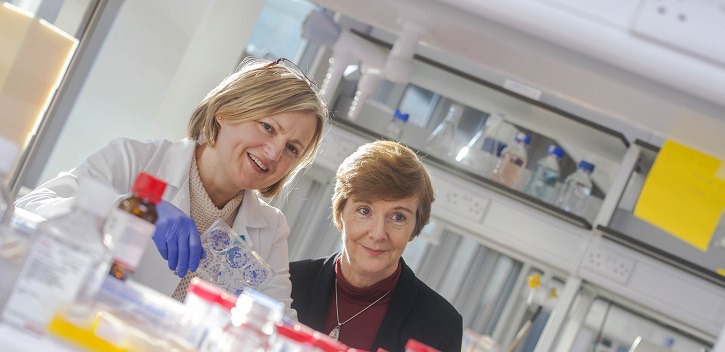Cork charity seeks funding for leukaemia research

A Cork-based charity is launching a major campaign to fund-raise for a ground-breaking research project which is hoped to lead to the development of a novel treatment for the blood cancer, leukaemia.
Former Clare hurler and RTE sports pundit, Ger Loughnane, who is a leukaemia survivor, launched the HERO campaign recently at the Jennings Gallery, University College Cork (UCC). HERO will host a charity ball 'Dance and dine with Ger Loughnane' on Saturday March 4 in the Vienna Woods Hotel at 7.30pm. More information is available on the HERO website http://www.hero-trust.ie/
HERO is an organisation set up in 2011 to provide funding for research projects and education in haematology initiated by University teaching hospitals in Cork. The charity supports research that significantly contributes to scientific knowledge on blood disorders and their treatment.
Professor Mary Cahill, a consultant haematologist at Cork University Hospital (CUH) and UCC said: “The name stands for Haematology, Education and Research Trust, but we put on the O at the end of HER-O to make it easy to remember. The O represents a red blood cell which provides us with oxygen and energy. In the last decade alone, there has been extensive progress made in treating blood cancers and curing some and our researchers seek to build on and extend this progress.”
A type of cancer found in the blood and bone marrow, leukaemia is one of the less common cancers, but it still accounts for one in 40 cancer deaths in Ireland, according to the National Cancer Research Institute. Ireland has the highest incidence rate of leukaemia in Europe — it is the eighth most common cancer in Ireland and the twelfth most common cancer in Europe.
Leukaemia is caused by the rapid production of abnormal white blood cells, which are unable to fight infection, and which impairs the ability of the bone marrow to produce vital red blood cells and platelets.
The research led by Dr Sharon McKenna, a world acknowledged autophagy expert and Principal Investigator at Cork Cancer Research Centre (CCRC), in collaboration with Prof Cahill, has shown how cancer cell survival mechanisms can be ‘tamed’ and manipulated to cause early leukaemia cancer cells (called blasts) to grow into more mature, well-behaved cells.
“All cancer cells have the ability to ‘batten down the hatches’ and go into survival mode when the going gets tough for the cancer and the patient is receiving chemotherapy. This process is called autophagy. Cancer cells use this process to hibernate and can wake up again once the chemotherapy is over. This, of course, will cause the cancer to relapse, sometimes with devastating consequences for the patients,” explained Dr Sharon McKenna.
The UCC researchers have shown that autophagy has alternative roles and is a key component in making troublesome immature cancer cells grow into responsible adult cells that carry out vital work in the body.
Prof Cahill said: “This represents a newer way of looking at cancer treatment. Increasingly, we are learning that cancer can be effectively ‘tamed’ where it can’t be eliminated.”
In the wake of this significant discovery and the publication of their findings, the research group is now setting out to discover how they can quickly manipulate the autophagy process to cause cells to mature quickly in cases of urgent clinical need, such as when a person develops acute leukaemia.
Dr McKenna pointed out: “We are already aware of a number of compounds which can bring this about. Some are surprising, for example, high doses of a certain kind of Vitamin A can trigger this mechanism. We are investigating how this happens to see if the mechanism can be triggered by any other agents.”
The UCC group has teamed up with researchers at Weill Cornell University in New York on this project. A researcher from UCC has been sent to Cornell to avail of their laboratory facilities and expertise, which complement those available at UCC.
The Cork team has also taken on a UCC Cornell Fellowship researcher from Canada, Dr Daliya Benjamin. An experienced haematologist, Dr Benjamin is currently working in Weill Cornell with leukaemia cells donated by patients of the haematology department at CUH to further this research.
For further information or to donate to this worthy cause, go to http://www.hero-trust.ie/
For more on this story contact:
Ruth Mc Donnell, Head of Media and PR, Office of Marketing and Communications, UCC Mob: 086-0468950
